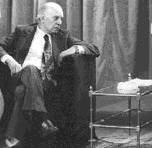Argentine poet and screenwriter
.mw-parser-output .hidden-begin{box-sizing:border-box;width:100%;padding:5px;border:none;font-size:95%}.mw-parser-output .hidden-title{font-weight:bold;line-height:1.6;text-align:left}.mw-parser-output .hidden-content{text-align:left}You can help expand this article with text translated from
the corresponding article in Spanish. (March 2009) Click [show] for important translation instructions.
View a machine-translated version of the Spanish article.
Machine translation, like
DeepL or
Google Translate, is a useful starting point for translations, but translators must revise errors as necessary and confirm that the translation is accurate, rather than simply copy-pasting machine-translated text into the English Wikipedia.
Do not translate text that appears unreliable or low-quality. If possible, verify the text with references provided in the foreign-language article.
You must provide
copyright attribution in the
edit summary accompanying your translation by providing an
interlanguage link to the source of your translation. A model attribution edit summary is Content in this edit is translated from the existing Spanish Wikipedia article at [[:es:Ulyses Petit de Murat]]; see its history for attribution.
You should also add the template ((Translated|es|Ulyses Petit de Murat)) to the
talk page.
For more guidance, see
Wikipedia:Translation.
Ulyses Petit de Murat |
|---|
 |
| Born | (1907-01-28)January 28, 1907
|
|---|
| Died | August 19, 1983(1983-08-19) (aged 76)
|
|---|
Ulyses Petit de Murat (28 January 1907 – 19 August 1983) was an Argentine poet and screenwriter.
He wrote the script for The Gaucho War (1942) with Homero Manzi based on the 1905 novel by Leopoldo Lugones. At the 1943 Argentine Film Critics Association Awards, Murat and Manzi won the Silver Condor Award for Best Adapted Screenplay for their screenplay of the film which proved highly successful.[1] His poem "Graciela Oscura" was set to music by Astor Piazzolla for the film Extraña ternura; this song was repeated several times in the movie, and was reported to be the main attraction of the film when it opened at Cine Monumental in the spring of 1964.[2]
He was a member of the jury at the 1960 Cannes Film Festival[3] and the 13th Moscow International Film Festival in 1983.[4]
